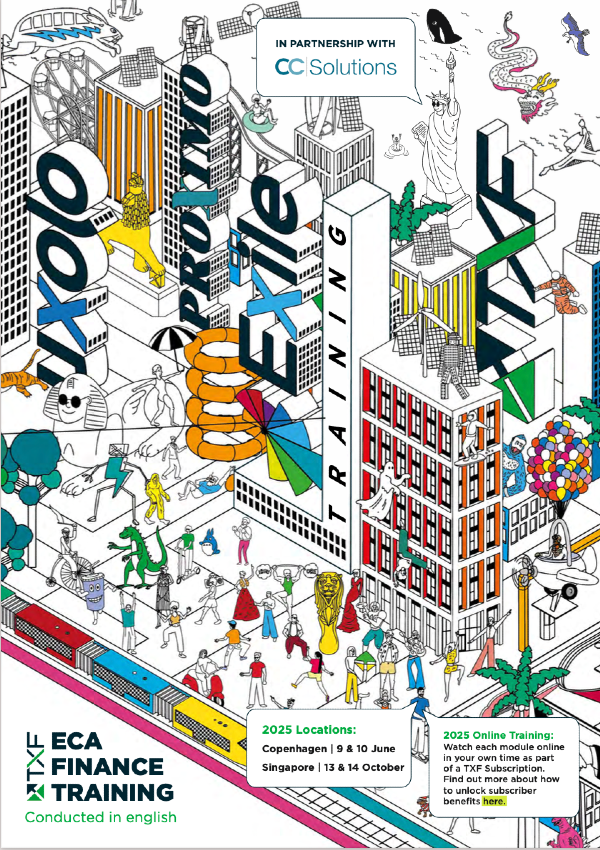Trafigura and the case of the missing nickel
Laurel and Hardy, Abbot and Costello, Cheech and Chong – all iconic comedy duos. Having booked a $577 million charge for the first half of 2023 against what it claims is a nickel fraud – Trafigura and Dopey looks set to be added to the list.

Accusations of fraud have returned to the world of commodities under the not-so-watchful eye of Trafigura. More than 1000 containers are now attached to a scandal that has drawn major international press coverage. As Trafigura begins the long road to litigation, questions must be asked of how this situation was allowed to develop, and where the industry goes from here.
Commodity fraud is rare, but its impact is far-reaching. A sector that revolves around the transport of high value goods in large quantities at speed will always be a target for shady players, and the absence of public disclosure creates gaps for fraudsters to operate in. Each case involves eye-catching figures and quirky details; just last summer, around $500 million of copper vanished from a warehouse in the Chinese port of Qinhuangdao, while in 2021 Mercuria paid $36 million for a shipment of copper, only to take delivery of a container full of spray-painted rocks.
The impact of these disappearances has been steadily felt over the past few years, as banks withdraw more and more credit for all but their largest partners. In 2020, ABN Amro and BNP Paribas took the next step by exiting the commodity finance industry during the fallout from the collapse of Hin Leong.
The flight to quality in commodity finance has concentrated lines of credit around the biggest names. For better or worse, the banks have closed ranks around reliable and familiar partners at the expense of the mid-tier traders in an effort to prevent further cases of fraud. Now, one of those chosen partners has made headlines with an embarrassing breakdown in its due diligence procedures. It is difficult to escape the irony of the current situation, nor the feeling that schadenfreude has played a significant role in the scale of media coverage that it has received. For Trafigura, the challenge is now to remove the question mark that will inevitably hang against its every move.
Slow to react
According to a press release published on 9 February, Trafigura is commencing legal proceedings for alleged fraud against the companies held by Prateek Gupta, including TMT Metals and UD Trading Group. A small number of containers acquired from these companies was found not to contain the nickel that was promised under a wider purchase agreement for more than 1100 containers with a value of up to $577 million.
Trafigura was first alerted to irregularities in November, when, according to the trader, a number of red flags appeared. Sources have stated that it was around this time that Citigroup, the bank that had financed Trafigura’s trade with TMT, decided to pull its funding, thereby forcing Trafigura to finance the deals through its own cashflow. This encouraged senior figures in the trader’s hierarchy to take a closer look at Gupta’s activities.
The reaction across the commodities industry has been one of incredulity. Multiple sources have suggested that Gupta’s reputation as an unreliable trading partner is well-established. India’s Central Bureau of Investigation announced an investigation into his dealings with the State Bank of India last July, and his companies have been embroiled in a legal dispute with TransAsia Private Capital, a Hong Kong-based asset manager, for a number of years. He is accused of failing to repay the fund the millions of dollars that it forwarded to support his trading activities. Prateek Gupta’s reputation is not helped by his close association with Sanjeev Gupta, the head of the GFG Alliance metals corporation, who is of no relation. GFG is currently under investigation by the UK’s Serious Fraud Office as a result of its involvement in the infamous collapse of Greensill Capital. GFG has consistently denied allegations of fraud, and it has issued a statement to the Financial Times (FT) refuting any connection to Prateek Gupta’s activities.
In addition to these issues, an investigation by the FT has argued that Trafigura itself noted several concerns long before the alarm was raised in November. The report alleges that as early as 2021 trades involving TMT were taking upwards of 300 days to complete. This is several times greater than even the longest international shipping route should take.
Wider market impact
For the rest of the industry, the key question now is what impact this case will have on commodity trade financing. Trafigura’s involvement complicates this question considerably, given its size and reputation.
The $577 million figure has caught headlines, and the presence of nickel has caused a stir after a traumatic period for the nickel markets. It was only a year ago that the London Metal Exchange suspended its nickel trade after prices spiked to more than $100,000 a tonne. If no nickel is recovered from the containers, the black hole will create further uncertainty in a troubled market. All of these factors have helped to significantly increase the story’s visibility.
If Trafigura is fortunate, then the $577 million figure will be at least somewhat misleading; it is an estimate of the total nickel cargo that TMT was supposed to deliver. Only around 15% of containers have been checked so far, and Trafigura will be able to sell on the metals that they do contain, even if they are of significantly less value. There is also litigation to be pursued. Even taken as a whole, $577 million is painful, but hardly threatening to an energy trader that made a profit of around $7 billion in 2022.
Trafigura’s real problem is that the industry has been given a troubling insight into its due diligence procedures. How could a trader of such scale have allowed this deception, and why did it choose to continue its association with a man facing multiple investigations into his trading activities? If Citibank’s withdrawal really was a catalyst for further investigation, then concerns will be raised about Trafigura’s internal procedures. As one trader put it to TXF, “when you’re buying material in containers, the containers are sealed by an inspection company, and they should have done a sampling before the seal goes on. If it arrives and the seal is broken, then you have a red flag immediately. It would appear that there wasn't a lot of assessment on the quality of the traded cargoes here”.
The embarrassment will be compounded if there is any knock-on effect on Trafigura’s banking relationships. The biggest traders have access to near bottomless lines of credit through their revolving facilities, and most would have placed Trafigura next to companies like Glencore and Vitol in that category.
And while corruption is a key issue for the market, competence is a bigger factor. Glencore has brushed aside bribery fines in the US, the UK, and Brazil amounting to more than $1 billion in the last year.
Trafigura will need to prove that it does not need greater oversight from its financing partners. In a separate announcement, Trafigura revealed that its Head of Nickel and Cobalt Trading, Socrates Economou, has left the company.
The TXF perspective
Trafigura’s reaction to this setback will, presumably, involve a return to more stringent diligence procedures in all its trades. It remains to be seen if Trafigura uses this case to review its involvement in other repurchase agreements and accommodation trades. Under the terms of these deals, Trafigura will buy shipments from a company like TMT Metals and transport them through multiple jurisdictions in order to raise additional financing. Only then will the cargo be sold on to the market. Unlike a traditional commodity trade, whereby a trader helps to move goods directly from a producer to a manufacturer or consumer, these transactions are used to improve balance sheets. As a result, the trader has fewer incentives to ensure the quality of the delivered goods.
Trafigura has certainly found a few more incentives to be more rigorous in future. Updates from the FT show that by January, multiple customers had made complaints to Trafigura about shipments that did not contain the promised goods. The trader will race to contain any wider contamination in the nickel market, but there is no escaping the fact that it has damaged its relationships among both banks and corporates.
Little sympathy will be found among fellow traders if Trafigura has been burned in an effort to fill its own coffers, particularly given the enormous credit lines that it already benefits from. As one trader put it to TXF, no mid-tier organisation would get away with such a casual attitude to diligence. While Trafigura can absorb the financial fallout of this case, it is the smaller players that will face real costs if financiers begin to tighten their risk profiles.
Of course, a flight to quality usually benefits a company like Trafigura. The question for banks is whether they see this as a one-off error, or as a reflection of broader market failures. In such an unusual situation, the ramifications for the wider market are difficult to predict.
The industry is certainly eager to show that procedures have improved since the darkest days of the Hin Leong scandal. Another high-profile fraud case does not help anyone, even if Trafigura’s actions seem to have been out of step with almost every other player. Many have been at pains to show that the errors of this case can be easily learned: avoid deals with unreliable partners, ensure quality through collateral management services, and establish rigorous procedures for every trade. These are all pertinent, but they do not answer the central question of how this crisis was allowed to unfold.
Proper disclosure is a tricky concept for the commodity industry. On the one hand, digitalisation has been hailed as a new panacea for trade finance through blockchain and technological monitoring. The UK government is looking to pass an Electronic Trade Documents Bill, as well as an Economic Crime and Corporate Transparency Bill that will include a “failure to prevent fraud” offence. In an ideal world, traders claim, they would upload their trades onto a secure database to allow for real-time management.
On the other hand, paper trails continue to dominate the industry through bills of lading and letters of credit that are susceptible to forgery. Bilateral trades are regularly completed away from public eyes. Banks rarely discuss their deals with each other, creating space for fraudulent individuals to double finance cargo. In this environment of mystery, accountability and diligence might seem like intruders. After all, that mystery is central to the allure of commodity trading. In the case of the missing nickel, it is easy to see, if not excuse, how familiarity could have chipped away at best practice.





